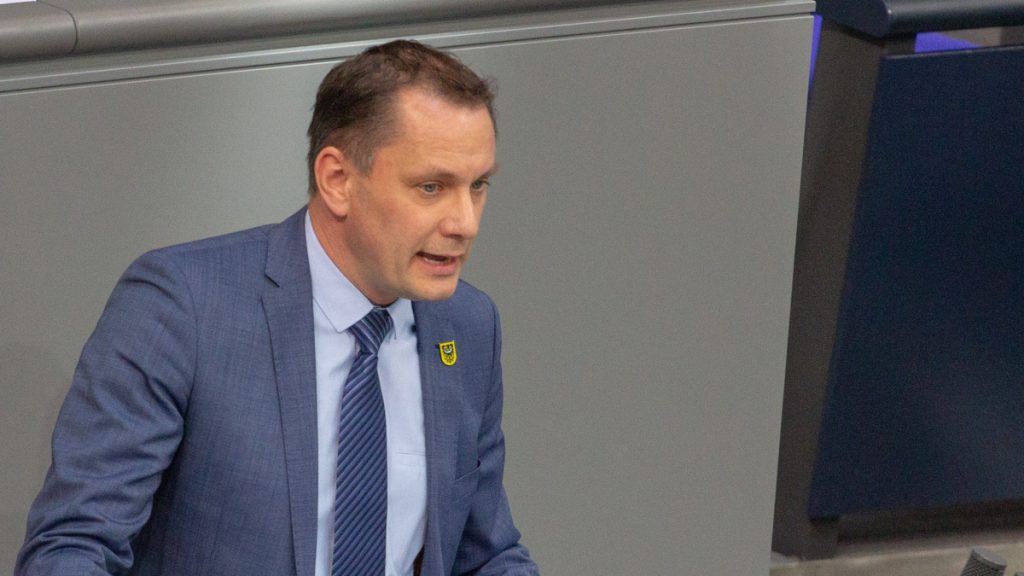A recent set of polls showed that Germany’s right-wing populist party Alternative für Deutschland (Alternative for Germany or AFD) is now in the top 3 most influential parties in the nation.
According to figures from 8 prominent polling organizations in Germany, AFD is currently grabbing 15% to 17% of the vote, putting it as the third strongest party in Germany. That said, data from the Insa polling institute also demonstrates that the party has considerable room for growth.
The Insa poll demonstrated that an additional 10% of voters indicated their willingness to vote for the AFD. Remix News reported that that is apparently a 2% increase from the previous poll. Should the AFD reach its full potential, it could attain 26.5% of the vote.
Similarly, in a poll published by YouGov, AFD finds itself in second place in terms of party strength in Germany. Per the poll’s results, 17% of voters would pull the lever for the AFD. The Christian Democratic Union (CDU) is the strongest party in Germany, enjoying 31% of support from voters.
AFD was founded in 2013 and has been the most prominent voice of Euroscepticism and immigration restriction in German politics. Despite being labeled as “fascist” or “neo-Nazi” by its critics in the corporate media, AFD’s policies are in line with many right-wing populist parties that have gained prominence across Europe in recent decades such as Italy’s La Liga and France’s National Front party.
AFD still has significant room for growth given the multitude of problems Germany is currently facing. It’s no secret that Germany is faced with daunting crises on economic and migratory fronts. According to the Insa poll, 34% of voters labeled themselves as “angry citizens” and among AFD supporters, 70% describe themselves in such a manner.
“The AfD is currently catching those sections of society for whom the Union does not distinguish itself clearly enough from the traffic light coalition,” observed Hermann Binkert, the managing director at Insa.
Migration continues being a divisive issue in Germany. This group of disaffected voters has an axe to grind with the German government’s immigration policies. Under these lax policies, roughly 1.5 million migrants arrived in 2022.
This group was particularly infuriated by Germany’s migration policy, which has seen only swelled in recent years. In 2023, the German government is projected to spend €36 billion on migrants. In the first three months of the current year, north of 160,000 migrants have arrived in Germany. The AFD is firmly opposed to the German ruling class’s mass migration policies.
On top of that, the majority of Germans are largely opposed to a plan to ban oil and gas heating. Some experts project that such a ban could cost Germans €9 billion annually until 2028. On foreign policy, the AFD maintains a relatively realist set of foreign policy positions. For example, Tino Chrupalla, AFD’s leader in the German parliament (Bundestag), published a post on Facebook on April 12, 2023 where he stood against efforts to have Germany’s economy decoupled from China and Russia.
“Should we really not only cut ourselves off from Russia’s raw materials but also from China’s high technology? These value-driven policies are against the interests of our citizens,” Chrupalla posted. “We must follow interests-driven policies and trade freely and peacefully with the whole world.” The AFD parliamentary leader also endorsed China’s efforts to bring an end to the Russo-Ukrainian conflict.
“Inflation, coronavirus measures and Ukraine policy are also fostering an anti-establishment mood among dissatisfied voters. Many of them assume they can anger the establishment the most with a vote for the AfD,” continued Binkert.
All things considered, an AFD victory at the polls will drastically change German politics. Instead of functioning as another NATO satrapy that toes the Atlanticist line, Germany could perhaps follow in the footsteps of Hungary, a country that employs a multi-vector foreign policy of courting all prominent actors in the West and Eurasia.
However, due to the European Union’s universalist mindset, it’s unlikely that the AFD will make overnight progress. One can expect the German political establishment, with help from Brussels and Washington, to clamp down on any AFD-led efforts to shake up politics in Germany.
When it comes to disruptive politics in the West, populist parties can always expect to face all sorts of censorship, foreign interference campaigns against them, and even state suppression of their political activity. That’s how the cookie crumbles in the increasingly woke civilizational space that is the Collective West.
